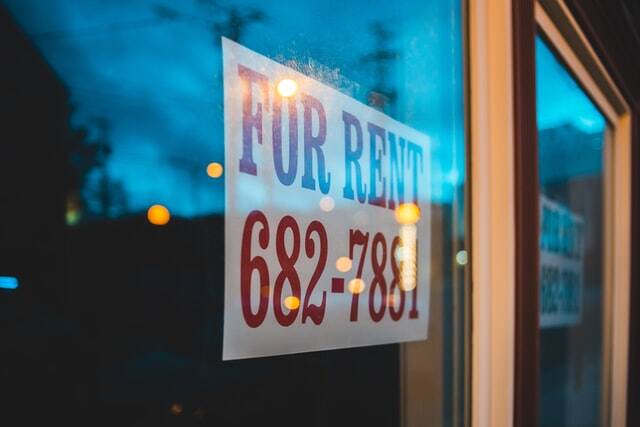What to Know About Renting to College Students
Do you own a rental property located in the vicinity of a college campus like George Mason or Marymount? If you do, then you are in the prime market for student renters. Student housing is considered a massive, multibillion-dollar real estate sector. Much of the smart money out there knows it and is hungry to occupy this space. Still, there can be plenty of room for individual investors interested in making a mint on this side of education. But what makes this niche so attractive? What are the real ups and downs? Below we discuss what there is to know about renting to college students.

What to Know About Renting to College Students
Pros of renting to college students
Demand for housing is high (and stable)
As long as the university keeps accepting students, the market for your unit will be stable. For starters, most schools do not offer four years of housing. Also, due to high home prices and strict lending policies, homeownership is out of reach for many Americans. So, not only will thousands of college students be on the hunt for a place to live, but also professors and staff during their tenure. For you, this means reduced vacancies and competitive rates.
You don’t even have to work that hard on promoting your listings. The costs of advertising can be extremely low or even free if you advertise where students are looking. You can try Craigslist, Zillow, and Trulia or post for free on student websites. Just be sure to mention the most in-demand amenities in your property adds and offer competitive rental rates.
Higher rents
There are two reasons why this is so. The first one we’ve already mentioned – high demand means you can get away with charging more (just not too much more). Secondly, college students are looking for affordability. For this reason, many choose to live with roommates and split the rent. Having multiple tenants in your rental who are paying rental on one lease means you can up the price a bit but still keep it affordable.

Having multiple tenants in your rental unit means you can probably up the price a bit.
A stable third-party payment
The thing about leasing your property to college students is that they’re probably not the ones paying the rent. Typically, either a parent figure or financial aid covers the cost of housing and living expenses. With a more responsible party involved, you will likely receive your rent on time and in full each month.
Students aren’t generally looking for anything fancy
Say you do opt for this tenant base – what this means is that you will likely end up with a lot of low-maintenance renters. You don’t need to be as concerned about attracting new renters with premium updates such as stainless-steel appliances or kitchen backsplashes. What you need to know about renting to college students is that they’re typically perfectly happy with less as long as it is clean and in decent condition. This, in turn, can help you save a lot of time and money.
There are certain amenities they look for in a property, though
Still, there are several things you will need to take care of to make sure your listings match the students’ expectations.
- Proximity to campus. Students spend most of their time on campus, working, studying, or going to their extracurricular activities. In light of this, it is only natural that they’d prefer to be as close to their campus as possible.
- A washer and dryer. Having to go to a laundromat can be a serious hassle for a college student. Given they’re so busy juggling their schoolwork and jobs, spending hours waiting to wash and dry their clothes is probably the last thing they want. If there’s something you must know about renting to college students is that they for sure will appreciate an on-site washer and drier.
- Safety. Both students and their parents, who are most likely footing the cost of rent, want to be sure where they’re living is safe. Adding security features to your property may be your best bet to get a parent to approve of your rental. These may include a deadbolt lock, an alarm system, external security cameras, ample exterior lighting, etc.
- Wi-Fi. High-speed internet may be one of the most sought-after amenities for college students. Not only do they use Wi-Fi to get their schoolwork done, but also for all kinds of entertainment and cutting down on data usage on their cell phone bills (which we all know can get pricey!) So, if you’re looking to gain an edge over the competition in your area, providing quality internet service is a perfect way to do that. You could also consider offering free Wi-Fi services as a bonus amenity or wrapping it up in the rent price.

High-speed internet is one of the most in-demand amenities.
Cons of renting to college students
No rental, credit, or employment history
Likely, your tenants haven’t had the chance yet to build their credit history. It is also possible that they have no experience with renting or paying a debt. This can pose a problem for you as a landlord since screening such a candidate may be a lot more challenging. You are highly unlikely to find the information you need to decide if they would be good renters, cause few or no problems, pay rent on time, etc. However, calling all of their references might help you get some clue about their character. Moreover, you can check if the student in question has previously been expelled from student housing since it’s similar to an eviction. Finally, requiring a cosigner is the best solution for many landlords out there whose tenants have insufficient credit histories.
Students can get loud
With stories about wild parties and students trashing their house, you might feel hesitant to rent your property to students. And you are right, to some extent. Although the majority of students aren’t partying every weekend, they sure are notorious for being noisy. For this reason, be sure to include a Quiet Hours policy in your lease agreement. This way, your tenants would know that there are certain times when they’re free to have their fun and other times when they should be more respectful to others. While you’re at it, consider enforcing a guest policy or any other rules that may seem obvious but still necessary for this group.

Include a Quiet Hours’ policy in your lease agreement.
They’re inexperienced in maintaining properties
Another thing to understand about college student letting is that your tenants are likely first-time renters. They may have neither the experience nor the maturity to handle basic property upkeep or maintenance issues. Moreover, occasional parties and a high number of guests accelerate normal wear and tear. Finally, you shouldn’t exclude the possibility of returning to the rental at the conclusion of the lease only to find more significant damage. The solution?
Security deposit. Protect yourself against any damages by charging the maximum amount you legally can.
Cosigner. Having a cosigner is bound to discourage negligence since a parent will be on the hook to pay for all repairs.
Walk-throughs. It’s important that everyone is on the same page about the condition of the rental. Also, by conducting routine inspections every few months, you will make sure the unit remains in good condition. Only, make sure to note this in your lease and give your tenants 24 hours’ notice in advance.
Furnished or unfurnished? Many landlords opt for unfurnished student housing for this reason. If you have the same worries, going for an unfurnished unit may be the answer. There are even instances in which the tenant wants to bring his/her own furniture. In this case, having a unit at your disposal is always a good idea. This way, you can have the furniture out of the way (and safe and sound in a storage unit) for this tenant, yet within reach when the time comes to welcome the next one.
Frequent turnover
Yearly turnover is not uncommon with college renters. They may enroll in a four-year degree program. This, however, doesn’t guarantee that their housing plans will remain the same year to year. They also may not be open to signing a lease for longer than a year. Another result of frequent turnover is that you will have to not only make repairs but also find new tenants annually. Otherwise, you run a risk of prolonged vacancy if your unit is vacant the time semester begins. In such an event, it will be pretty challenging to fill your unit until the next semester starts.
Another thing you should know about renting to college students is that they typically sign short-term leases. Since these leases usually run the length of the school year, you might need to find different renters for a summer term. Offering perks for repeat tenants or referrals can be the solution. Have your tenants sign leases for the entire year, even if they do not intend on living in the unit for all the summer months. Another solution is to offer year long-leases with the summer months on discount.
If you would like to learn more about WJD Management, please review our comprehensive Management Program guide. If you are ready to rent your home, feel free to take advantage of our exclusive FREE Rental Market Analysis. Finally, don’t forget to connect with us on social media! Follow us on Facebook, Twitter, LinkedIn, Instagram, and Pinterest for tips, ideas and updates.


